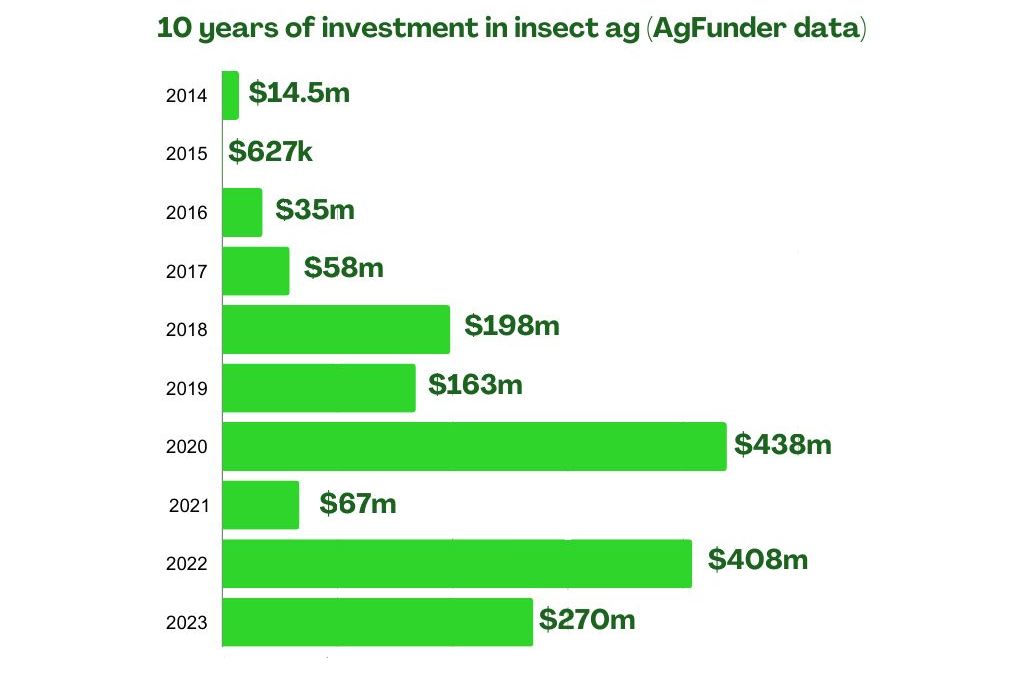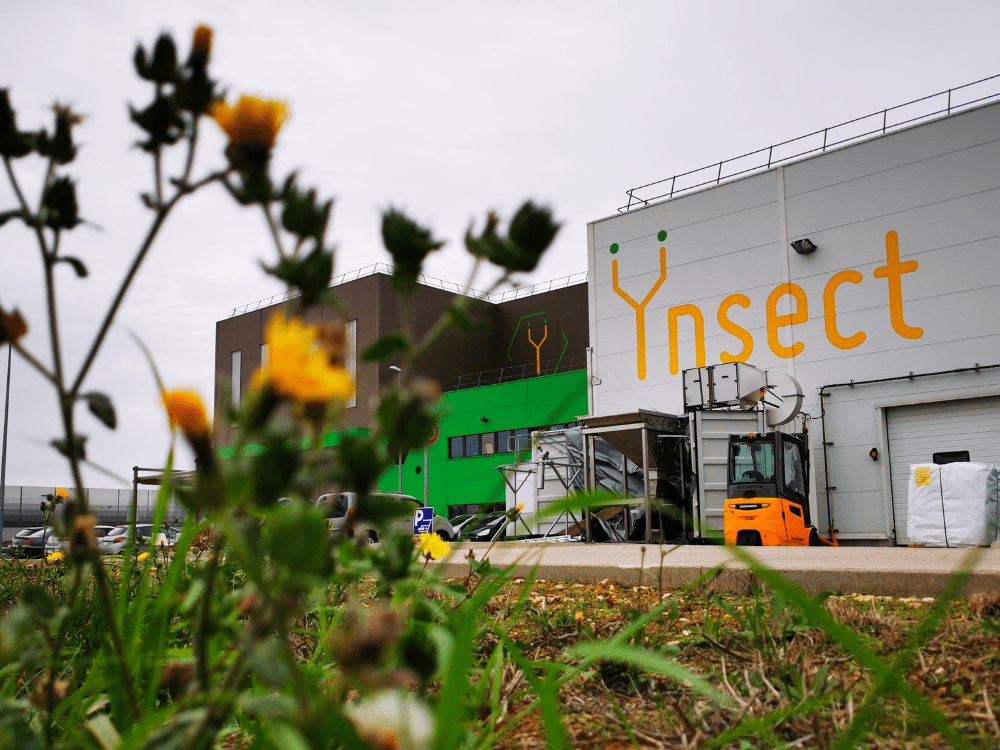Ÿnsect—one of the highest-profile players in the nascent insect farming space—has filed a safeguard plan with a commercial court in Évry, France, in a bid to stay afloat as it raises funds to expand production at its mealworm facility in Amiens.
The firm started protein production in Amiens over the summer, but needs to secure more funding to get to a scale whereby it can “ensure profitability.”
In a statement sent to AgFunderNews, Ÿnsect said it was in “advanced discussions with a certain number of investors wishing to support and finance this launch phase of its industrial process,” but noted that “the delays inherent in carrying out this fundraising however, proved to be incompatible with the financial pressure suffered by the company.”
The safeguard procedure is designed to help companies that are facing financial difficulties but are not yet insolvent to continue operating, keep jobs, and pay off debts.
The procedure, “during which operation continues normally, will allow the company to benefit from the time necessary to finalize the discussions relating to this new fundraising,” said the firm, which said the process will be overseen by an officer appointed by the court.
A spokesperson added: “This procedure allows you to freeze the receivables and gives some time. The safeguard plan will be carried out subsequently, in collaboration with the judicial administrator. At this stage, no element of the backup plan has been finalized.”
Restructuring and recapitalization in 2023
The latest move comes a little over a year after the company raised a $175m funding round and unveiled plans to refocus its strategy on higher-margin markets such as pet food, close a production plant in the Netherlands, cut jobs, and move COO Shankar Krishnamoorthy into the CEO role, leaving cofounder Antoine Hubert to focus on “strategy, science, innovation, influence, IP and impact.”
Speaking to us earlier this year, Hubert said the long-term future of the company would involve licensing or joint venture models: “On our part, we have made the commitment through discussions with Ardent Mills and Corporativo Kosmos to continue our development through licensing or JV models. This model allows us to both limit costs and benefit from the expertise, raw material supply, and knowledge of local markets of these same players.”
At the time, he said, Ÿnsect had “signed contracts worth around $200 million, primarily with players in the petfood sector. In January, we also received approval from the AAFCO [which regulates animal feed and petfood in the US] for the commercialization of one of our ingredients (Protein70) for use in adult dog food in the US.”

‘We have seen a lot of capital not achieving very much in this space’
Founded in 2011 by Hubert and Alexis Angot, Ÿnsect has raised almost $580 million over the past 13 years from investors including Astanor, BPI France, Crédit Agricole, Upfront, and Robert Downey Jr.’s Footprint Coalition. This dwarfs the amount raised by other players in the segment, which has attracted just $1.65 billion over the past decade, a tiny percentage of the $205 billion pumped into agrifoodtech startups over the same period according to AgFunder data.
We have “seen a lot of capital not achieving very much in this space,” said Sandy Singh Sandhu, CFO at Singapore-based Entobel, which recently opened a black solider fly larvae facility in Vietnam capable of producing 10,000 tons of protein meal a year.
“Milestones have been missed and there hasn’t been enough de-risking of the technology.”
And now that the heady days of cheap money and crazy valuations are firmly in the rearview mirror, the chances of getting VC funds to finance huge CapEx projects have shrunk considerably, added Mohammed Ashour at Aspire Food Group, which is commissioning a 12,000/ton/year cricket processing facility in London Ontario.
“The cost of capital has shot through the roof.”
Further reading:





